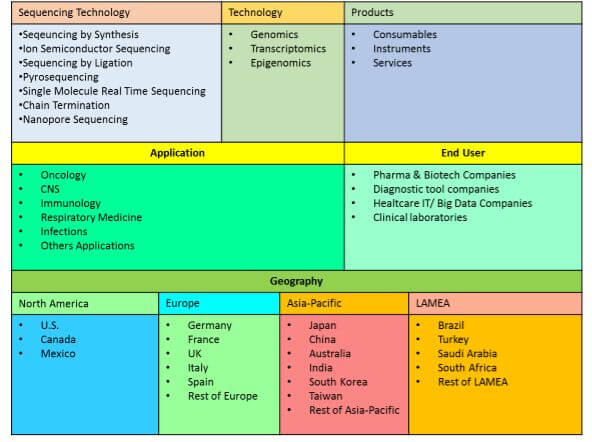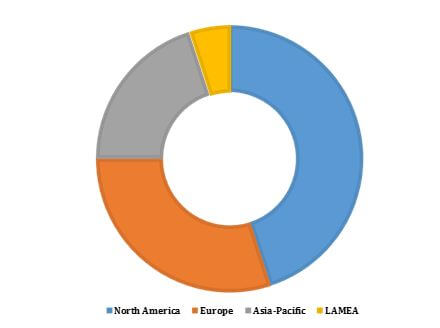Precision Medicine Market Overview:
The precision medicine market was valued at $3,516 million in 2016, and is estimated to reach at $7,746 million by 2023, registering a CAGR of 11.9% from 2017 to 2023. Precision medicine is based on a unique concept that states, two people infected with same disease dont need to have same physical response toward the disease. However, it depends on the surrounding environment and influence of genes and symptoms of patient. Moreover, it also depends on patients ability of responding to that particular disease, which enables the doctors and researchers to organize the required treatment. Precision medicine commonly includes use of system biology and panomics to determine the reason for an individual patient's illness at the molecular level. Followed by the use of concentrated medications to address individual patient's illness. Precision medicine offers many advantages such as efficient treatment customized to patients needs and category of disease. Moreover, precision medicine can reduce cost of treatment and help decrease repeated administration of medications.
The precision medicine market is segmented based on technology, sequencing technology, product, application and geography. Based on technology, it is divided into genomics, transcriptomics and epigenomics. Based on sequencing technology, the market is bifurcated into sequencing by synthesis, ion semiconductor sequencing, sequencing by ligation, pyrosequencing, single molecule real time sequencing, chain termination sequencing and nanopore sequencing. Based on product, the precision medicine market is subdivided into consumables, instruments and services. Based on applications it is classified into oncology, CNS, immunology, respiratory medicine, infections, and other applications. Based on end users, it is categorized into diagnostic tool companies, pharma & biotech companies, clinical laboratories, and healthcare IT/big data Companies. Geographically, it is analyzed across North America, Europe, Asia-Pacific, and LAMEA.
Global Precision Medicine Market Segmentation
The precision medicine market is expected to grow at a productive rate during the forecast period. Surge in global incidence of cancer and increase in ageing population susceptible to disease are expected to boost the demand of precision medicines. Government initiative & grants and private companies investing in R&D of precision medicines is expected to boost the market growth.
Global Precision Medicine Market, By Geography, 2016 (%)
The report provides extensive competitive analysis and profiles of key market players, such as, Roche Holding AG, Illumina Inc., Thermo Fisher Scientific Inc., QIAGEN, Quest Diagnostics, Laboratory Corporation of America Holdings, Novartis AG, AstraZeneca, Bristol-Myers Squibb, and Eli Lilly & Company.
The other players in the value chain include Abbott Laboratories, Almac Group, Ltd, Asuragen, Inc., Cepheid Inc, Cetics Healthcare Technologies GmbH, Ge Healthcare, Glaxosmithkline Plc, Intomics A/S., Biocrates Life Sciences Ag, and Pfizer Inc.
Key Benefits
- This report entails a detailed quantitative analysis of the current market trends from 2016 to 2023 to identify the prevailing opportunities.
- Market estimations are based on comprehensive analysis of the key developments in the industry.
- In-depth analysis based on geography assists to understand the regional market and the strategic business planning.
- The development strategies adopted by key manufacturers are enlisted to understand the competitive scenario of the market.
Precision Medicine Market Segments:
By Technology
- Genomics
- Transcriptomics
- Epigenomics
By Sequencing Technology
- Sequencing by Synthesis
- Ion Semiconductor Sequencing
- Sequencing by Ligation
- Pyrosequencing
- Single Molecule Real Time Sequencing
- Chain Termination Sequencing
- Nanopore Sequencing
By Product
- Consumables
- Instruments
- Services
By Application
- Oncology
- CNS
- Immunology
- Respiratory Medicine
- Infections
- Others Applications
By End user
- Diagnostic Tool companies
- Pharma & Biotech Companies
- Clinical Laboratories
- Healthcare IT/ Big Data Companies
By Geography
- North America
- U.S.
- Canada
- Mexico
- Europe
- Germany
- France
- UK
- Italy
- Spain
- Rest of Europe
- Asia-Pacific
- Japan
- China
- Australia
- India
- South Korea
- Taiwan
- Rest of Asia-Pacific
- LAMEA
- Brazil
- Turkey
- Saudi Arabia
- South Africa
- Rest of LAMEA
Precision Medicine Market Report Highlights
| Aspects | Details |
| By TECHNOLOGY |
|
| By SEQUENICNG TECHNOLOGY |
|
| By PRODUCT |
|
| By APPLICATION |
|
| By END USERS |
|
| By GEOGRAPHY |
|
| Key Market Players | ELI LILLY & COMPANY (ELC), LABORATORY CORPORATION OF AMERICA HOLDINGS (LCAH), QIAGEN N.V.,, QUEST DIAGNOSTICS (QD), ASTRAZENECA, BRISTOL-MYERS SQUIBB (BMS), ILLUMINA, INC, ROCHE HOLDING AG (ROCHE), NOVARTIS AG (NAG), THERMO FISHER SCIENTIFIC, INC |
Analyst Review
Precision medicine is an innovative approach toward personalization of healthcare; wherein, doctors and researchers plan treatment considering patients socioeconomic status, lifestyle, and differences in genes. Structuring personalized treatment supports doctors to attend issue at its source. This procedure also has different advantages, which include reduced number of drug administrations and low treatment cost. With technological advancements in genomics and genetic research, precision medicine has developed over time for efficient treatment of sophisticated diseases. Enhanced progression of precision medicine can be attributed to the growth and integration of cognitive computing and data analytics with healthcare.
Upsurge in demand for quality healthcare and medications & surge in global incidences of cancer boost the market growth. In addition, recent development in technology and government initiatives exemplified by precision medicine cohort program initiate by National Institute of health with $130 million from Project management institute (PMI). Furthermore, National Cancer Institute (U.S.) is working on a cancer genomics project linked to the use of precision medicine. Surge in investment of private Biotech and pharma companies concerning R&D in precision medicine is expected to fuel the market.
Precision medicines are used prominently for the treatment of cancer, however these days, they are also preferred to treat patients suffering from diabetes, neurology and cardiology related diseases, rare illnesses, and conditions or disorders linked to aging. Precision medicine aids researchers to develop drugs related to treatment of cancer based on unique genomic setting of patients. Drugs such as Herceptin, Tarceva, and Gleevec work efficiently with certain unique genetic profile of patients.
With special assistance from U.S. government (Precision Medicine Initiative announced by American president Barack Obama), the precision medicine market is expected to witness remarkable growth in North America. Presence of renowned, well-equipped, private, and government research facilities and pharmaceutical companies augment the development of the precision medicine market. Increase in government grants and initiatives to modernize healthcare infrastructure assist the growth of the market in Asia-Pacific.
Loading Table Of Content...






